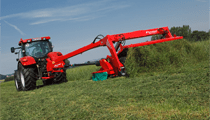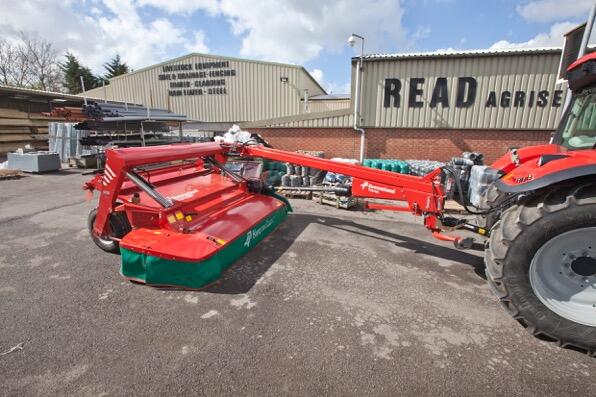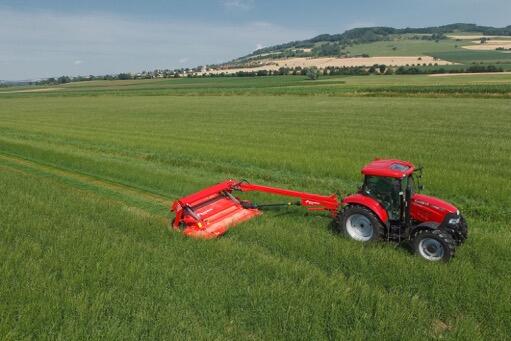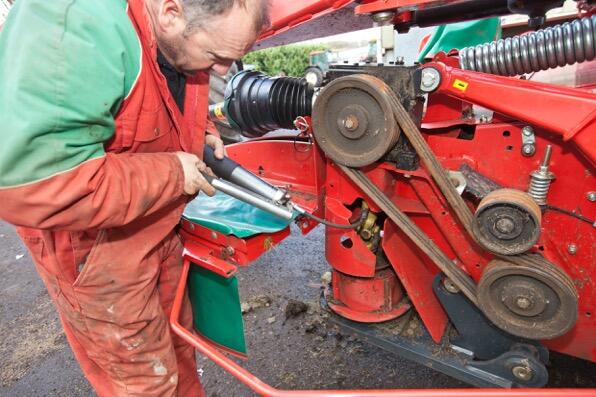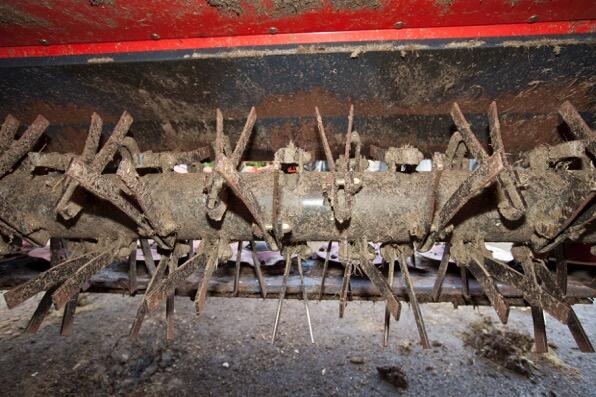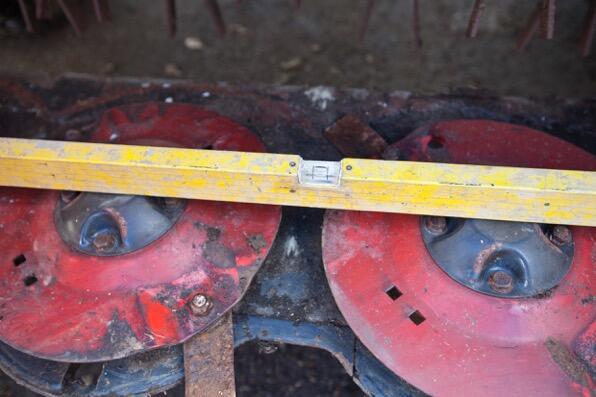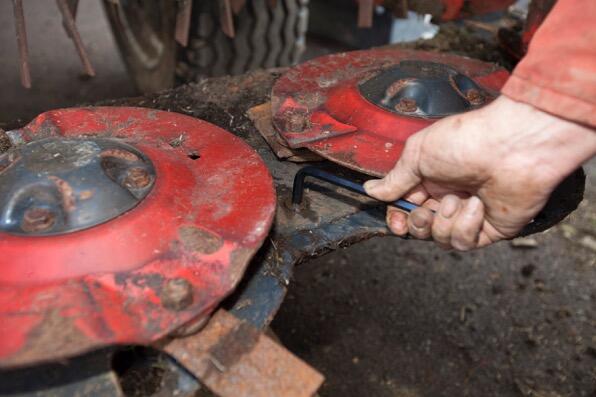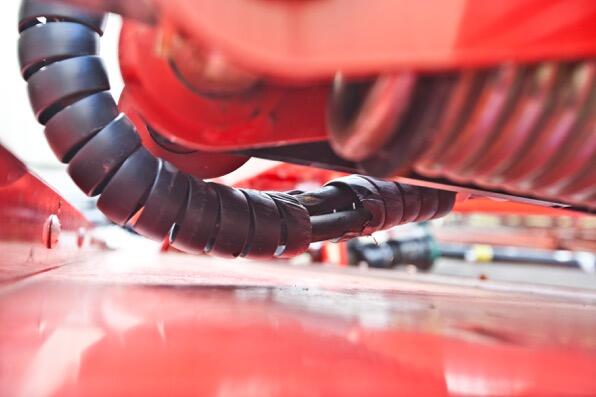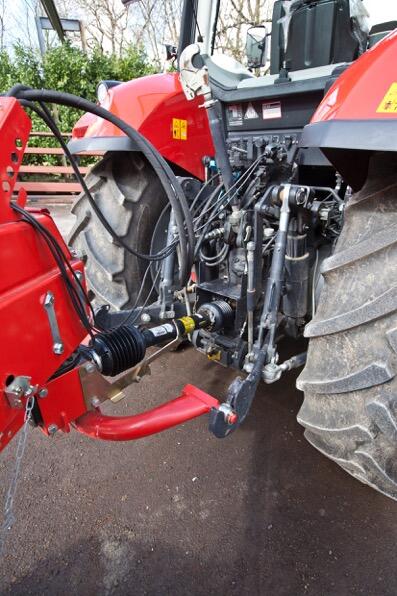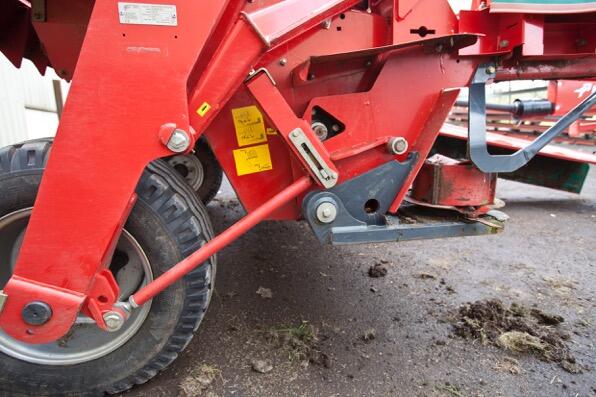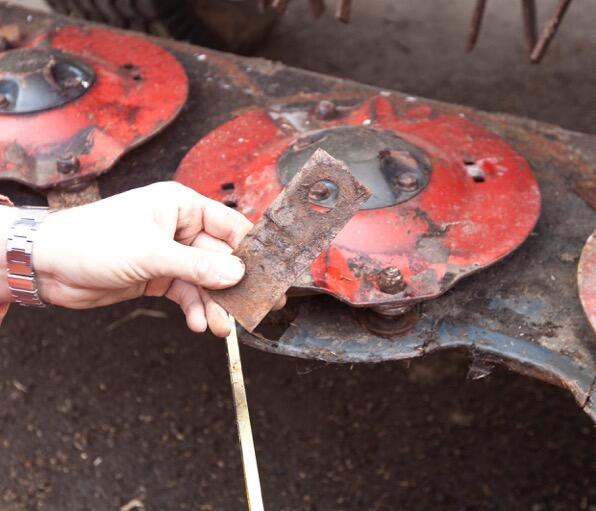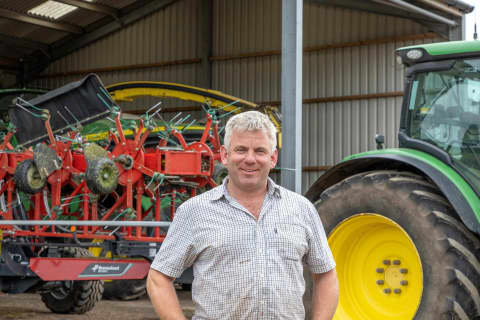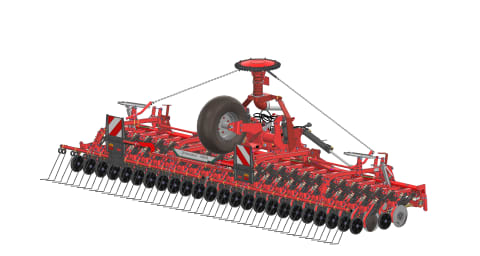Winter can do funny things to machinery and equipment. More so with seasonal kit that is unceremoniously dragged from the back of a barn – or worse still, the corner of a field - and is then expected to perform right off the bat.
A little time spent making visual checks, cleaning and freeing up ahead of greasing, checking and/or changing oils could pay dividends, as an avoidable breakdown is regrettable.
Whether front-, rear-mounted or trailed, check and set spring tension or hydraulic pressures according to the operator’s manual for bed float systems. It is important to check a break-back mechanism hasn’t become locked solid on mounted MoCo’s too.
But before you even think about opening guards, apply the handbrake, chock the wheels if checking a trailed mower, and remove the tractor’s ignition key to prevent accidental start-up.
Trailed Kverneland 4332 mower conditioner offers a 3.2m cutting width from eight, twin-bladed discs. Semi-swinging steel tined conditioner can be run at 600rpm for leafy crops or 900rpm and a flip-over spreading hood makes it easy to switch between swathing and full width spreading.
Conditioning effect can be adjusted through a three-position conditioner plate and its relationship with the rotor affords crop transfer without the risk of blockages in heavy crops.
With a swivelling headstock, this version affords tight headland turns, and is well suited for use with tractors from 90hp.
SuperFloat dual action bed suspension offers fast response to minor changes in ground contour without relying on the main suspension springs. It means faster forward speeds with consistent stubble heights.
Remove the guard to gain access to the conditioner belts. Check for splits, cracking and signs of failure. Clean any debris from pulley Vs and refit the belts, making sure the correct tension is applied. This model needs a pre-load on the belt tensioner, and is measured through spring height.
On this model, a short, telescopic driveshaft sits below the main gearbox and transmits power down to the mower bed. If the splines are seized, this can impact on how the bed suspension behaves, but is more likely to cause collateral damage to the main gearbox when the bed is lowered. If in doubt, remove the surrounding guards and withdraw the shaft to check for movement. Grease and refit.
Check the conditioner for damaged or missing tines. On this semi-swinging tine, ensure all tines are able to move. It is also worth putting spanners across nuts and bolts that are used to secure high-speed rotating parts. It wouldn’t take long for a loose nut to let a tine to go somewhere it shouldn’t.
Mower bed oil should be replaced each season, but at the very least the oil level needs checking. Methods vary from machine to machine, so a handbook makes essential reading. Oil level on this 4332’s bed is checked by dipping, but only after the bed has been positioned and checked using a spirit level to ensure the bed is perfectly horizontal from left to right and front to back.
A visual check of hydraulic hoses, rams and seals will quickly identify areas that may soon be in need of attention. This pipework, despite being clad in a protective sheathing, has been trapped and needs re-routing before a breakdown occurs. It is the best way to avoid an in-season failure.
An often over-looked area to check is lift arm length and tractor tyre pressures. While the effects of uneven measurement are more easily masked with trailed kit carried on the lower links, the problem is more pronounced on mounted MoCo’s. Measure lift rod lengths and tyres pressures, ensuring both sides are identical. And don’t forget to check tyre pressures on a trailed MoCo.
Headstock gearboxes, like any other gearboxes, need checking for signs of oil leaks, with repairs carried out as required. Consult the operator’s handbook for correct oil type and level checks – a pre-season oil change could be good preventative maintenance, and if the oil contains foreign objects, you’ll need to look further.
The powertrain, pto guards, pto tubes and any overload protection devices also need to be checked and reset according to the handbook, with damaged components being replaced. Don’t over-grease bearings and joints, but follow manufacturer’s guidelines.
Cutting height and blade pitch on this model is set and adjusted by altering the location of the tie-bar that joins the bed and rear axle. For mounted models, the top link does the job.
Determine the desired stubble height and set according to the manufacturer’s instructions. As a guideline, bed angle should be less than 10 degrees to the ground. Apply oil and then a spanner on the bed’s spring adjusters and check they’re easy to move. Rough set-up should allow you to manually lift a corner with a bit of effort. Though you may need to tweak the settings when out in the field.
With trailed MoCo’s, consider setting the nearside spring slightly heavier than the offside. Doing so will help the nearside of the bed to resist lifting slightly from a torque reaction. This phenomenon can occur each time the tractor changes gear, and this can cause the stubble height to vary.
Even if you’re not going to change blades – and you really should – at least remove them all and refit. This serves two purposes – it allows you to check for cracking around bolt holes and it also lets you replace or free-up any stuck blades.
Blades on the far-right disc do more work than any others, as they cut against the next bout in addition to grass ahead of the disc. And working against the headland, these blades are subjected to the worst of field conditions. So make sure all is as good as it should be.
Also check the condition of the skids and the filler plates between the discs, replacing any that are badly worn or missing.
11. May 2015

